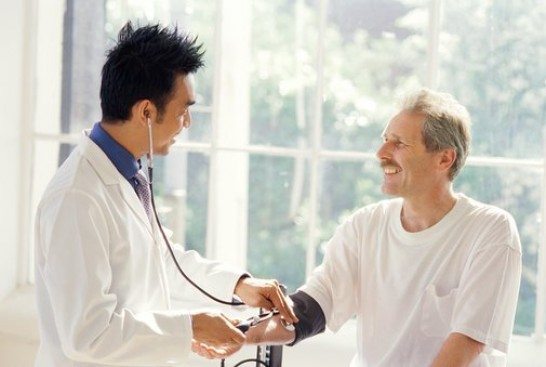Our blood pressure fluctuates typically throughout each day for several factors. These include activities, foods, stress, specific times of day, and seasons. However, if it remains too high for an extended period of time, we’ll likely suffer from some medical complications.
Uncontrolled high blood pressure (also called hypertension) can lead to eye problems, kidney problems, aneurysms, heart failure, and heart attack or stroke, to name a few. In fact, it’s the main risk factor for death worldwide, affecting more than one billion people.
Fortunately, thanks to the advancement of medical technology, several treatments can now lower hypertension, be it medical or non-medical. In this article, we’ve rounded up simple ways to lower your blood pressure in just a few minutes.
Take A Hot Bath or Shower
Hot baths are among the simplest and most effective home remedies for hypertension. They lower your blood pressure in many ways. First is through vasodilation or the widening of blood vessels.
According to a professor from Harvard Medical School, the high temperature in a warm tub or bathroom causes your blood vessels to dilate or become wider. The wider your blood vessels are, the less pressure is needed.
Another way is through relaxation. Our muscles relax when warmed during a hot bath or shower. When they relax, they’ll require less blood. Additionally, a hot bath or shower relaxes you mentally. Mental relaxation signals your circulatory system to relax, which lowers your blood pressure.
Lastly, a hot bath or shower regulates your temperature. Low temperatures typically cause blood vessels to narrow temporarily. When this happens, your blood and heart must work harder to regulate your body temperature.
While this is normal, it increases your blood pressure, which may be bad for others. In contrast, warm baths mean that blood and the heart don’t need to work as hard to keep you warm.
It’s recommended to take a bath or shower at less than 100 degrees for 15-30 minutes. Consider doing it before bedtime to keep your blood pressure low for hours or even the entire night.
Nonetheless, it’s great for everyone, but it’s important to consult your doctor. This is particularly necessary if you have a heart condition because a high temperature may also increase your heart rate.
Practice Breathing Exercises
Recent research in the Journal of the American Heart Association suggested that doing at least breathing exercises daily, six days a week, can lower blood pressure. Through strength-training their breathing muscles, the study’s participants had similar improvements when taking a daily 30-minute walk or blood pressure medication. Many of them consider breathing exercises as an alternative to medication.
Here are some breathing exercises to help lower your blood pressure:
- 30-Second Breathing Exercise – Take six deep breaths within 30 seconds.
- 4-7-8 Breathing Exercise – Inhale for four, hold for seven, and a big whoosh for eight seconds.
- Equal Breathing Exercise – Inhale for four, hold for four, exhale for four, and repeat. As the name implies, this focuses on equal breath length.
- Diaphragmatic Breathing Exercise – Lie or sit down comfortably. Place one hand over your chest and another under your rib cage. Inhale through your nose, and when you do so, your hand under your rib cage should rise. Then exhale through pursed lips. This time, your hand under your rib cage should rise. Your hand placed over your chest stays still when inhaling and exhaling.
All these slow, deep breathing exercises activate your parasympathetic nervous system (PNS), a group of nerves that relaxes your body if you’re stressed or in danger. When activated, PNS dilates blood vessels and reduces your heart rate, decreasing your overall blood pressure.
Stay Hydrated
Not drinking enough fluids causes the blood to have higher sodium levels. When this happens, we secrete vasopressin, an antidiuretic hormone. It tells our kidneys to reabsorb more water.
When it happens in high enough concentrations, our blood vessels narrow, increasing blood pressure. Hence, if dehydration is the cause of high blood pressure, drinking water may help to lower it. Hence, if dehydration is the cause of high blood pressure, drinking water may help to lower it.
Alternatively, consider trying the following if it’s hard for you to keep drinking water:
- Sugar-free sparkling water
- Fruit or vegetable-infused water
- Fruits and vegetables with high water content (e.g., watermelon, honeydew, or cucumber)
- Fruit or vegetable smoothies
- Decaffeinated herbal tea
- Milk
- Low-sodium soup
Don’t Get Stressed
One of the key contributors to high blood pressure is stress. When you’re stressed, cortisol, our stress hormone, narrows your blood vessels. As mentioned, this forces you to pump blood harder and faster, producing a temporary spike in your blood pressure.
When feeling stressed, immediately do whatever you can to relax to avoid the risks of high blood pressure. Many people can immediately lower their heart rate and blood pressure by taking deep breaths, sitting in a quiet room for a few moments, or lying down. Others tend to do meditation, exercise or do something fun to release their stress.
Take Your Prescribed Medicine
Like any medical condition, medication adherence is key to lowering your blood pressure fast. Access to blood pressure medicines shouldn’t be as hard as before since most countries offer them for free or cover them in their health care. If not, they’re usually affordable and can be bought at even lower prices with discounts and coupons, such as Cozaar Coupon.
If you keep forgetting your pills, consider taking them at the same time every day. Coincide it with your routine, like after morning coffee, after breakfast, after brushing your teeth, after showering, or before bedtime.
Final Thoughts
There’s no single solution to hypertension. You must incorporate several lifestyle changes, including an active routine, a DASH (dietary approaches to stop hypertension) diet, drinking more water daily, and stress-reducing activities. More importantly, don’t skip your medication and see your doctor regularly.




